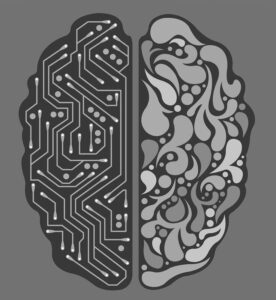Artificial Intelligence and Brain Injury
Artificial intelligence and brain injury present interesting opportunities to improve lives. Traumatic brain injury (TBI) is a common injury that can have a significant impact on a person’s cognitive abilities. Cognitive disabilities caused by TBI can range from mild to severe and can affect a person’s ability to think, learn, remember, and make decisions. Cognitive disabilities can have a devastating effect on the lives of victims and their families. Artificial intelligence (AI) is rapidly changing the world, and its potential to improve the lives of people with cognitive impairments is vast. AI-powered technologies can help people with disabilities to communicate, learn, and live more independently.
Cognitive Disabilities Caused by TBI
The most common cognitive disabilities caused by TBI include:
- Attention: People with TBI may have difficulty paying attention, staying focused, and shifting attention from one task to another.
- Memory: People with TBI may have difficulty learning new information, remembering old information, and recalling events.
- Executive function: Executive function is a set of cognitive skills that allow people to plan, organize, and execute tasks. People with TBI may have difficulty with executive function tasks such as problem-solving, decision-making, and impulse control.
- Language: People with TBI may have difficulty understanding and using language. They may also have difficulty with reading, writing, and speaking.
- Visuospatial skills: Visuospatial skills are the ability to see and understand the world around you. People with TBI may have difficulty with visuospatial skills such as judging distances, navigating, and using maps.
Severity
The severity of cognitive disabilities caused by TBI can vary depending on the severity of the injury. Mild TBIs may only cause mild cognitive deficits that resolve over time. However, more severe TBIs can cause more significant cognitive deficits that can persist for months or even years.
There is no one-size-fits-all treatment for cognitive disabilities caused by TBI. However, there are a number of interventions that can help to improve cognitive function. These interventions may include:
- Cognitive rehabilitation: Cognitive rehabilitation is a type of therapy that helps people to improve their cognitive skills. Cognitive rehabilitation programs typically involve a variety of exercises and activities that specific cognitive domains.
- Medication: Medications treat some of the symptoms of cognitive disabilities. For example, medications used may improve attention, memory, or mood.
- Support groups: Support groups can provide people with TBI with a forum to share their experiences and learn from others who have been through similar experiences. Support groups can also provide emotional support and practical advice.
The prognosis for people with cognitive disabilities caused by TBI varies depending on the severity of the injury and the individual’s response to treatment. However, with early intervention and ongoing support, many people with TBI can make significant improvements in their cognitive function.
Early Intervention
If you or someone you know has experienced a TBI, it is important to seek medical attention as soon as possible. Early intervention is essential for improving the chances of a good outcome. There are also a number of resources available to help people with TBI and their families. These resources can provide information, support, and guidance.
Here are some resources that may be helpful:
- The National Institute of Neurological Disorders and Stroke (NINDS) provides information about TBI and its effects on cognitive function.
- The Brain Injury Association of America (BIAA) provides support and resources for people with TBI and their families.
- The Centers for Disease Control and Prevention (CDC) provides information about TBI prevention.
I encourage you to visit the websites of these organizations. You can also talk to your doctor or a therapist who specializes in TBI.
How Artificial Intelligence Can Help
Artificial intelligence (AI) is rapidly changing the world, and its potential to improve the lives of people with cognitive impairments is vast. AI-powered technologies can help people with disabilities to communicate, learn, and live more independently.
Examples
Here are some specific examples of how AI is improving the lives of people with cognitive impairments:
- Speech recognition and text-to-speech technologies can help people with speech impairments to communicate more effectively. These technologies can also be used to provide real-time transcriptions of lectures, meetings, and other events, which can be helpful for people with hearing impairments.
- Virtual assistants such as Amazon Alexa and Google Home can help people with cognitive impairments to stay organized and manage their daily tasks. These assistants remind people to take medication, set alarms, and control smart home devices.
- Augmented reality (AR) and virtual reality (VR) technologies can be used to create immersive learning experiences for people with cognitive impairments. These technologies can be used to teach people about different subjects, such as history, science, and math. They can also be used to help people with disabilities to practice skills in a safe and controlled environment.
- Robotics can be used to provide companionship and assistance to people with cognitive impairments. Robots can be programmed to perform tasks such as reminding people to take medication, helping them with personal care, and providing emotional support.
 These are just a few examples of how AI is improving the lives of people with cognitive impairments. As AI technology continues to develop, we can expect to see even more innovative and life-changing applications for people with disabilities.
These are just a few examples of how AI is improving the lives of people with cognitive impairments. As AI technology continues to develop, we can expect to see even more innovative and life-changing applications for people with disabilities.
Potential to Improve Lives
In addition to the specific examples mentioned above, AI has the potential to improve the lives of people with cognitive impairments in a number of other ways. For example, AI can be used to:
- Personalize education for people with cognitive impairments. AI can be used to analyze a person’s learning style and preferences, and then create a personalized learning plan that is tailored to their individual needs.
- Develop new treatments for cognitive disorders. AI can analyze large datasets of medical data, which helps researchers to identify new patterns and insights that lead to the development of new treatments for cognitive disorders.
- Create more inclusive and accessible environments. AI can be used to design and implement features that make it easier for people with cognitive impairments to navigate and use public spaces, buildings, and transportation systems.
Potential Benefits
The potential benefits of AI for people with cognitive impairments are vast. As AI technology continues to develop, we can expect to see even more innovative and life-changing applications for people with disabilities.
Overall, the potential benefits of AI for people with cognitive impairments outweigh the potential challenges. With careful planning and execution, AI can be a powerful tool for improving the lives of people with cognitive impairments and helping them to achieve their full potential.
In addition to the benefits mentioned above, AI has the potential to:
- Reduce the stigma associated with cognitive impairments. By providing people with cognitive impairments with the tools and resources they need to live independently and meaningfully, AI can help to reduce the stigma associated with these conditions.
- Promote social inclusion. By making it easier for people with cognitive impairments to participate in social activities and civic life, AI can help to promote social inclusion.
- Enhance the quality of life. By improving the ability of people with cognitive impairments to communicate, learn, and live independently, AI can have a positive impact on their quality of life.
The future of AI for people with cognitive impairments is bright. As AI technology continues to develop, we can expect to see even more innovative and life-changing applications for people with disabilities. AI has the potential to revolutionize the way we think about and treat cognitive impairments. And it has the potential to make a real difference in the lives of millions of people around the world.
The Importance of Seeking Qualified Medical Help
If you are reading this article because you suspect someone is experiencing symptoms of a traumatic brain injury; before anything else is done it is imperative that medical professionals evaluate the victim. Artificial intelligence and brain injury is a great topic to learn about, but only after the victim gets proper evaluation and treatment by medical professionals.
Seeking qualified medical help in case of a TBI is important for several reasons:
- To assess the extent of the injury and rule out any underlying medical conditions.
- To provide treatment for any immediate medical problems, such as bleeding or swelling in the brain.
- To prevent further injury to the brain.
- To monitor the patient’s progress and make sure that they are receiving the appropriate care.
- To provide information and support to the patient and their family.
The sooner a person with a TBI receives medical attention, the better their chances of a good outcome. Early intervention can help to prevent further injury to the brain and reduce the risk of long-term complications.
First Step
If you or someone you know has experienced a TBI, it is important to seek medical attention immediately. Do not wait to see if the symptoms improve on their own. The sooner you get help, the better your chances of a good outcome.
Here are some signs and symptoms of a TBI that may require medical attention:
- Loss of consciousness. Even if the loss of consciousness is brief, it is important to seek medical attention.
- Headache. A headache that is severe, persistent, or gets worse over time may be a sign of a TBI.
- Nausea and vomiting. These symptoms may be a sign of an underlying medical condition, such as bleeding in the brain.
- Disorientation. Seek medical attention If the person experiences confusion or does not know where they are.
- Seizures. Seizures can be a sign of a serious TBI.
- Changes in behavior. If the person’s behavior is different than usual, such as becoming aggressive or withdrawn, please seek medical attention.
If you are unsure if someone needs medical attention after a head injury, it is always best to err on the side of caution and seek help.


